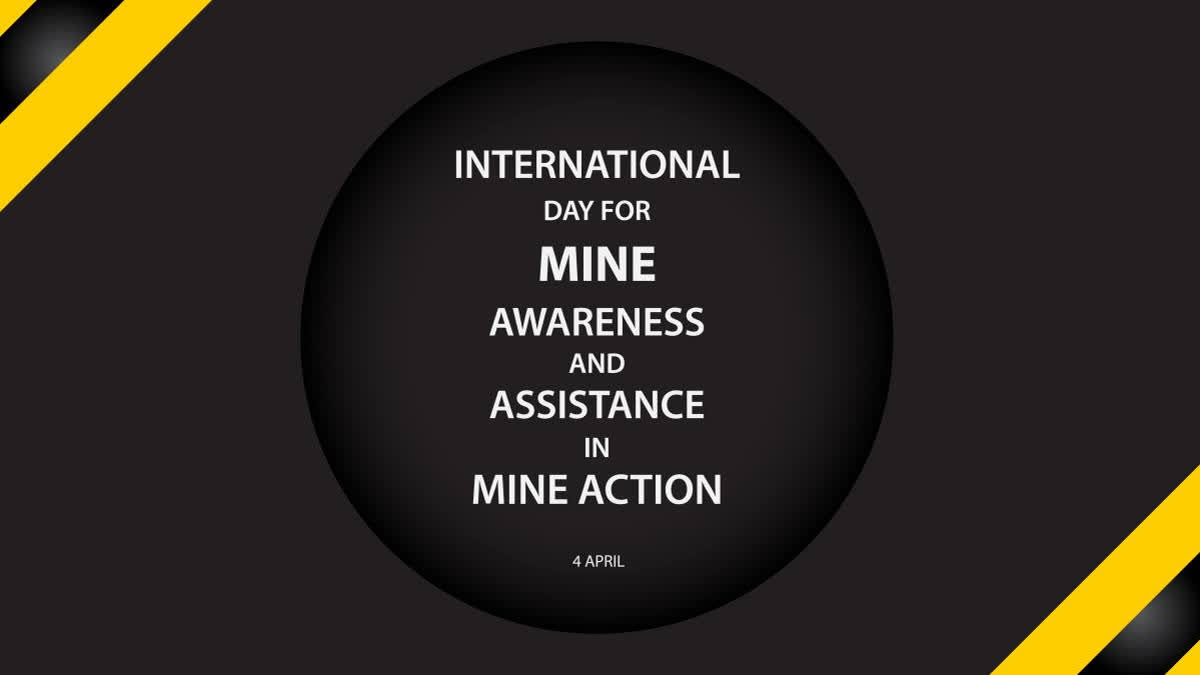Hyderabad: The International Day for Mine Awareness and Assistance in Mine Action is observed annually on April 4 to raise awareness and gather support for explosive mines worldwide. This day highlights the ongoing threat posed by landmines, explosive remnants of war, and improvised explosive devices (IEDs), which continue to cause death and injury, particularly in conflict zones. The day emphasises the importance of addressing the needs and rights of all individuals, especially those with disabilities, affected by these hazardous remnants.
Advocacy for Persons with Disabilities: In 2024, the United Nations Mine Action Service (UNMAS) is advocating for greater awareness of the needs and rights of individuals with disabilities in conflict and peacebuilding settings. This advocacy coincides with the fifth anniversary of Security Council resolution 2475, which calls upon Member States to protect persons with disabilities and ensure their inclusion in conflict prevention and peacebuilding efforts. With the appointment of Mr. Giles Duley as the United Nations Global Advocate for persons with disabilities in conflict and peacebuilding situations, efforts will focus on strengthening the implementation of resolution 2475 to ensure inclusivity and equality for all individuals.
Background: The General Assembly declared April 4 as the International Day for Mine Awareness and Assistance in Mine Action in 2005, underscoring the importance of continued efforts by states and relevant organisations to address the threat of landmines and explosive remnants of war. For over two decades, the United Nations Mine Action Service (UNMAS) has been dedicated to saving lives, facilitating humanitarian assistance, protecting civilians, and advocating for international humanitarian and human rights law.
History: Since the signing of the Mine Ban Treaty in 1997, 164 countries have ratified or acceded to it, signalling global support for the eradication of anti-personnel mines. Victim assistance, as outlined in Article 6 of the treaty, emphasises the care, rehabilitation, and social and economic reintegration of mine accident survivors and persons with disabilities. Additionally, efforts to address other explosive remnants of war, such as cluster munitions, have led to the adoption of international agreements aimed at protecting civilians from these deadly hazards.
Significance: The International Day for Mine Awareness and Assistance in Mine Action plays a crucial role in promoting mine action as a top priority for governments worldwide. Nations such as Colombia, Mali, Nigeria, and Afghanistan, among others, continue to benefit from UNMAS operations aimed at clearing explosives and landmines, facilitating humanitarian aid, and promoting the safe return of refugees and internally displaced persons. Through mine risk education, victim assistance, advocacy, and other initiatives, this day serves as a reminder of the ongoing efforts to safeguard lives and promote peace in conflict-affected regions.
5 Pillars of Mine Action:
- Clearance - Mine clearance involves surveys, mapping, and the actual removal of mines from the ground. Military and humanitarian clearance efforts aim to create safe pathways for civilians and peacekeepers alike.
- Mine Risk Education - Mine Risk Education (MRE) focuses on raising awareness and promoting behavioural change to reduce the risk of injury from mines and unexploded ordnance. Public information campaigns, education, and training are key components of MRE.
- Victim Assistance - Victim assistance is a core component of mine action, emphasizing the care, rehabilitation, and social and economic reintegration of mine accident survivors and persons with disabilities. States Parties under the Mine Ban Treaty are obligated to provide assistance and support mine awareness programs.
- Advocacy- The United Nations advocates for universal participation in international agreements aimed at banning or limiting the use of landmines and other explosive remnants of war. Regular meetings of treaty member countries monitor treaty implementation and promote collective action to address these hazards.
- Technology and Innovation- Advancements in technology, including explosive detection devices and cutting-edge clearance techniques, play a crucial role in enhancing mine action efforts. UNMAS continues to leverage innovation to improve efficiency and effectiveness in eradicating explosive hazards.


